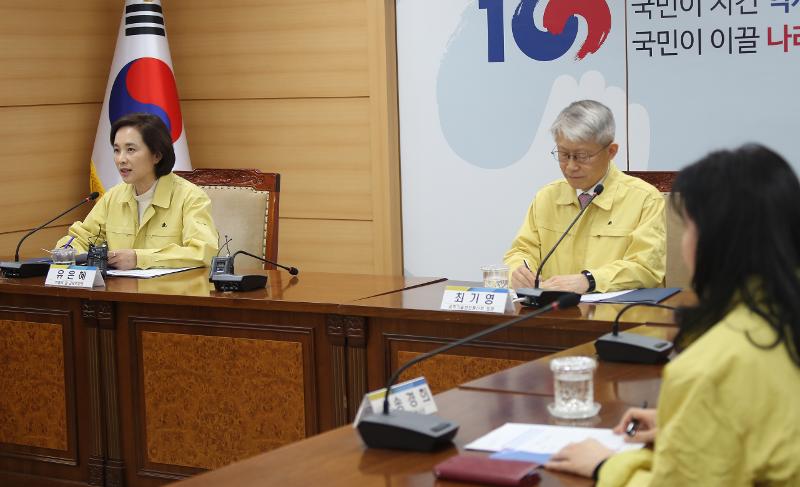-
 Korea.net's 24-hour YouTube channel
Korea.net's 24-hour YouTube channel- NEWS FOCUS
- ABOUT KOREA
- EVENTS
- RESOURCES
- GOVERNMENT
- ABOUT US

Deputy Prime Minister and Minister of Education Yoo Eun-hae (left) on April 1 discusses cooperation in online education infrastructure in a meeting with Minister of Science and ICT Choi Kiyoung at Government Complex-Seoul in Seoul's Jongno-gu District. (Yonhap News)
By Kim Hyelin and Yoon Sojung
The government has announced "all-out efforts" to support digital education ahead of the nation's first start to a new school year with online classes on April 9.
Deputy Prime Minister and Minister of Education Yoo Eun-hae and Minister of Science and ICT Choi Kiyoung on April 1 held a meeting on supporting online education and narrowing the education infrastructure gap among students.
The measures discussed by both ministers included offering unlimited online data for students when they access educational content, supporting internet installation and providing free rentals of smart devices for low-income families.
First, the government decided on support for distance education for low-income families who lack the appropriate environment for using smart devices and internet networks.
In cooperation with education offices nationwide, the government will offer free rentals of a combined 316,000 smart devices, including 230,000 from schools and education offices, 50,000 from the Ministry of Education and 36,000 from Samsung Electronics and LG Electronics.
Students will also get online data for free when using education-related homepages with the cooperation with the nation's top telecommunication companies KT, SK Telecom and LG Uplus.
In addition, the government will introduce new broadcast channels without imposing additional fees so that students can watch real-time educational content on EBS customized for each grade through IPTV offered by domestic internet service providers such as KT, SK and LG.
kimhyelin211@korea.kr













